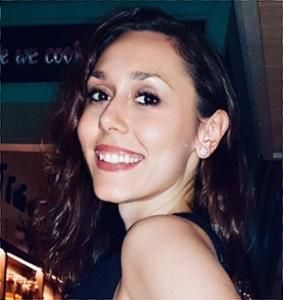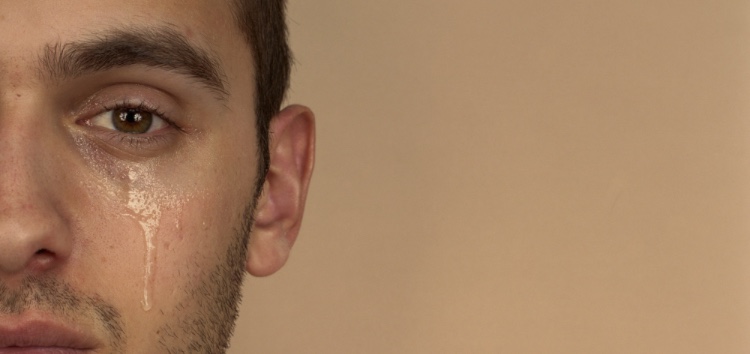It is often talked about the pressures society puts on women; The pressure to control our sensuality around men, the pressure to become mothers, the pressure not to be selfish with our own wants and dreams or the pressure to become unshakable pillars for our men and our children. And, the list goes on…
However, it is rarely talked about the expectations society places on men; The expectation to be strong, to provide, to protect, to conceal their true feelings or to never be afraid. In both scenarios, whether asking a man or a woman, we tend to look outside of ourselves to define what it means to be us. And yet, the experience to be a man or a woman is not universal but rather rooted in the personal conquest to find out who we are. We may all pursue the personal search of who we want to become or continue to follow the path already set for us and listen to what we have been told all our lives.
As a young woman, I will not pretend that I know what it feels like to be a man but a recent personal experience made me think deeply about the role women play in feeding the stereotypical expectations on men:
Recently, my uncle on my father’s side passed away unexpectedly. It is in our Albanian traditions and customs to separate the mourning of men and women during the first 40-day period post departure. The men’s room is overtaken by the clouds of tobacco, silence, the awkward coughs, handshakes and the occasional cheer with Raki[1] to honour the life of the departed. Meanwhile, in the women’s room you are overwhelmed by the crying, emotional outburst and the incredible heartbreak the loss has caused. The more distant female relatives become the carers of the close female family and friends during this period. They become the shoulders they lean on, the voices of comfort and the kind ears to listen to the hurt caused.
It never really occurred to me how unfair and unequal this experience is to men until I had to see my father ‘be a man’ in the men’s room every day to honour his brother. He was always calm and collected, greeting everyone who were paying their respects, comforting the older ones and being ‘the man’ for his late brother’s family. Naturally, he became the pillar we all leaned on to cope with the grief. In the process, we forgot that my father had just lost his best friend, his older brother and despite his efforts he was not immune to the heartbreak. For me, it was not hard to see that he had shut all of this feelings down and was fulfilling all that was expected of him as ‘a man’.
Three days after funeral, the family gets together around a meal not only to comfort one another but also to celebrate the legacy of the loved one they have lost. To end the meal, the head of the table (a man) makes a toast in honour of the departed and in this case it was my father’s duty. Yet again, he managed to be everyone’s rock but I could see that bulletproof armour slowly wearing off. I decided to forget about our customs for a minute, went by his side and raised my glass while holding on to this shoulder. Shortly after, he excused himself for a cigarette. I had decided that day I was not leaving his side so followed him to the balcony. I held his hand and I said: ‘Dad, It’s okay to let go’. That served as the hammer to break down all the hard shell around him and suddenly the tears were running along his face. For a moment he had finally allowed himself to grief, to hurt, to be human.
My father is a man who has always held the weight of his family on his shoulders with incredible strength and pride. In that moment, I did not think he had lost any of that same strength but rather gained some more. It also made me realise how little it took to allow that tender moment to happen. Despite him being the man who has taught me all I know, in that moment I had the power to make it better for him. There is great freedom and strength in allowing ourselves to be vulnerable. It is only then that we not only are on the path to discover our true self but also form deep and meaningful connections with others along the way.
While society accepts vulnerability as part of the gentle female nature, it sees it as a threat to masculinity. CJ Pascoe, a professor at the University of Oregon and author of ‘Dude, You’re a Fag’ says that “We brutalise males and then tell them the trade-off is they get to be in a more powerful position”[2]. Being man enough should not me measured against the relationship men have with women or their attitudes towards women but rather the relationship they have with themselves or with each other. Don McPherson, ex-NFL quarterback and feminist activist said, ‘Masculinity is not who we are but an act, a performance. We should raise boys to be men rather than not to be women or gay and start affirming what a loving man is..’ [3]
What the little story with my father taught me is that as women we have the power to break down this stereotype and help men to overcome the stigma around their masculinity. Perhaps in our long winded battle to achieve equality, we might have lost sight of the role we play ourselves in the Gender Imbalance and the culture of the ‘Macho[4] Man’. I have to admit, that I am guilty of this too and probably my culture plays a role in developing some of this mentality. My grandfather was an ex-army man who fought for the independence of our country at various points in time while my father has always acted as my safe place for as long as I can remember. Being surrounded by such strong and brave men who at the surface always held it together, it never occurred to me that I could equally be their safe place too if only I made it just a little easier for them to see that. If we consciously raised our sons, inspired our brothers, fathers or partners to express their feelings more, allow themselves to be afraid and ask for our help, wouldn’t they be better men to us too?
As women, we want to be seen and treated as equal to men, recognised to have the same strength, power and influence. But, isn’t it also time for us to also encourage men to be seen and treated as equal to us with the freedom to own their feelings and fears without paying the price of not being seen ‘as man enough’? I believe this is also the key to achieving the long desired equality we have and continue to fight for.
[1] Raki is an unsweetened alcoholic drink that is popular in Albania and Greece.
[2] https://eu.usatoday.com/story/news/2017/03/31/masculinity-traditional-toxic-trump-mens-rights/99830694/
[3]https://eu.usatoday.com/story/news/2017/03/31/masculinity-traditional-toxic-trump-mens-rights/99830694/
[4] The word ‘Macho’ is Iberian-descended and means possess and display bravery, courage and strength as well as wisdom and leadership.
The image was taken from: https://hotrfm.wordpress.com/2015/10/21/a-reader-shares-the-secret-emotional-needs-of-men-a-must-read/


